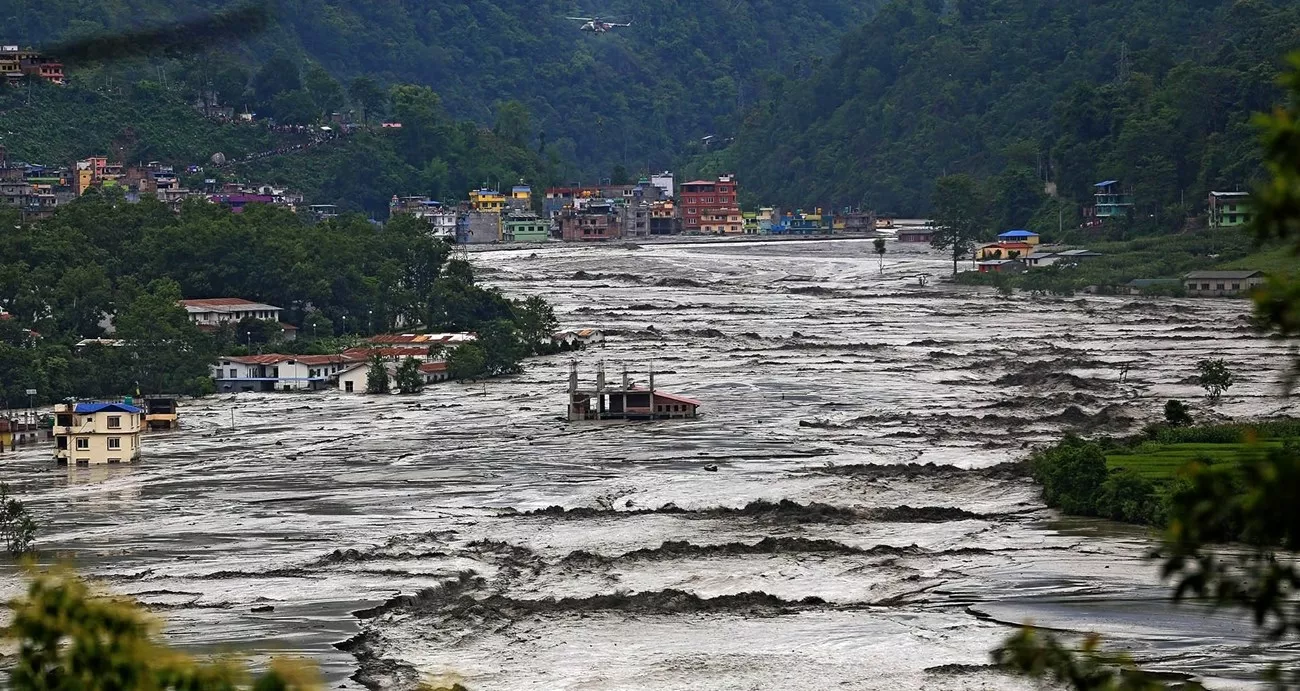Kathmandu: A new report by World Weather Attribution has underscored the urgent need for Nepal to take proactive measures to mitigate the devastating impacts of climate change-induced flooding. According to the study, human-induced climate change made the recent heavy rainfall in Nepal 10% more intense, contributing significantly to the deadly floods and landslides that claimed 244 lives.
Researchers warn that such extreme weather events will become more frequent and severe if the world fails to transition away from fossil fuels. To protect its population from future disasters, Nepal must limit development in low-lying, riverside areas of its cities and invest in early warning systems and prompt action plans.
The report highlights the vulnerability of Asia to increasing downpours, citing similar climate change-related floods in India, China, Taiwan, the UAE, Oman, and now Nepal. The recent flooding in Kathmandu Valley, which caused extensive damage to property and claimed dozens of lives, serves as a stark reminder of the urgent need for climate action.
Scientists emphasize that reducing development in flood-prone urban areas can significantly reduce the loss of life and property during future floods. By taking proactive steps to adapt to the changing climate, Nepal can build a more resilient future for its people.










